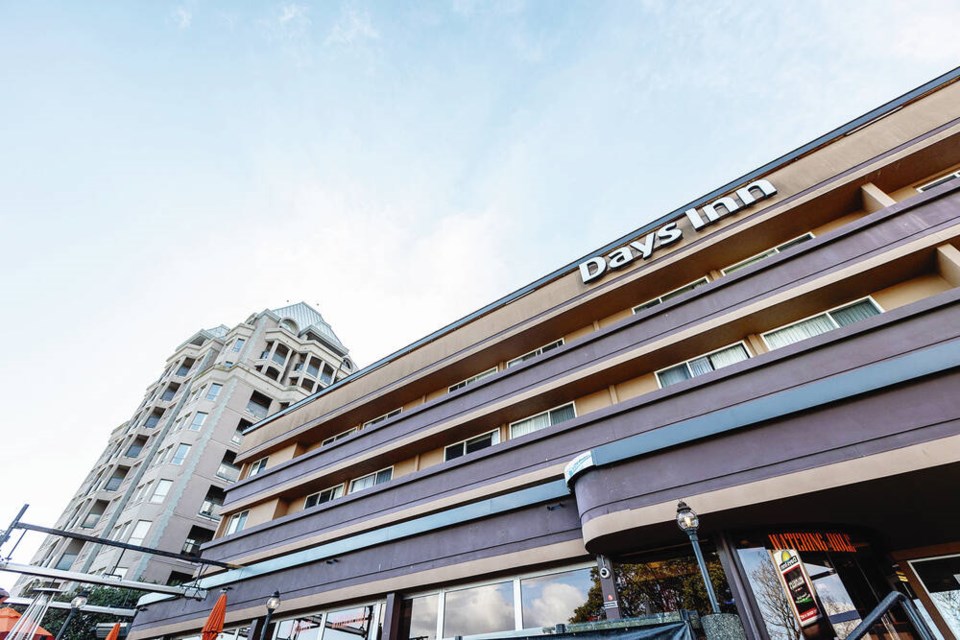Victoria’s mayor says council will still consider a motion today asking the province to push back implementation of new short-term rental rules until November, even though the housing minister has signalled he has no appetite for delaying the new rules.
Mayor Marianne Alto said she’s not sure the motion will pass. If it doesn’t, “I don’t write the letter and everything goes away.”
Set to come into force May 1, Bill 35 limits short-term rentals to a host’s principal residence or a basement suite or laneway home on their property in an effort to bring short-term rental units into the long-term rental housing pool.
Fines for hosts who break local bylaw rules will rise to up to $3,000 for each infraction per day and short-term rental platforms will be required to share data with municipalities.
Some short-term rental owners say they were blindsided by the legislation, and will be forced to sell their units, since long-term market rental rates won’t cover their costs.
Alto, who pushed for the provincial legislation, said the irony is not lost on her that she is now asking for a delay. The City of Victoria had enacted tougher rules on the short-term rental industry before the province announced its new legislation.
“This has nothing to do with the substance of the [provincial] legislation or in fact with the substance of any of the suite of housing legislation and policies that have happened from the province in the last few months — it’s only to do with timing,” she said.
Alto said council has heard from several short-term-rental owners pleading for more time to deal with the implications of the new provincial rules. She also noted a delay would give the city more room capacity for what is expected to be a busy tourist season.
Housing Minister Ravi Kahlon told reporters this week he was confused by the prospect of a request for a delay from Victoria council.
“Victoria had a principal-residence requirement before we even brought the legislation in,” he said. “So, our legislation is merely reinforcing what they already had.”
Kahlon said a high percentage of housing is being lost every year to short-term rentals. “I think that we collectively need to prioritize the people of our community who are struggling to find a place or struggling to even afford their rent. We need to increase that housing supply, and that’s what we’re trying to do here.”
A chronic housing shortage drove Tofino council Tuesday night to vote to opt into B.C.’s new short-term rental regulations. The district had been exempt, but council made the move to protect its housing supply.
“The housing crisis isn’t just an issue in large communities — it is also having a significant impact in smaller communities like Tofino,” said Kahlon. “We’ve heard from tourism and hospitality businesses in Tofino that they are struggling to operate because there isn’t enough housing for local workers.”
If the new rules come into force in May, the tourism industry will feel it, said veteran industry consultant Frank Bourree. He said delaying implementation until the fall would give the industry, owners and tourists a transition period to adjust.
“It was a shock for a lot of these guys who invested in properties that were legal and then they get the rug pulled out from under them,” he said.
As for the hotels, allowing short-term rentals to remain in place through the summer could lower the pressure on room prices, he said. “Anything they can do to mitigate until more hotels are built will be good for the industry here.”
Bourree pointed out room rates are already rising. According to Chemistry Consulting, which tracks the tourism industry’s performance, the average daily room rate in August last year was $313, a slight increase from $305 in August 2022, but a significant jump from $249 in August 2019.
Bourree said since 2010, the city has lost 17 hotels to demolition or conversion into condominiums or apartments. In that time, only one hotel has been built, the Oak Bay Beach Hotel.
He said that’s meant 2,000 rooms were removed from the system, and now 1,500 short-term rentals are on the verge of disappearing.
Bourree noted there are 11 hotels proposed for the city that are in various stages of development, but it will take at least two more years to get one or two of them into the system.
Reid James, general manager of the Hotel Grand Pacific, said he’s on the fence about delaying the implementation date.
James said the industry is struggling with the lack of affordable housing, which puts pressure on wages and makes it hard to recruit job applicants. “However, I sympathize with the short-term vacation rental owner/operators that had to pivot last year, especially for those that owned units that are too small to rent long-term. I am also sorry for the tourists that had their accommodation reservations cancelled because of the legislation.”
Paul Nursey, chief executive of Destination Greater Victoria, said a modest increase in hotel supply will be needed in the medium term to support a growing region.
“But I want to stress this is a need for full-service hotels with front desks and meeting rooms,” he said. “Full services that would support meeting planners, sports groups. It’s not just about the guest rooms. This is where short-term vacation rentals are not helpful.”
>>> To comment on this article, write a letter to the editor: [email protected]



